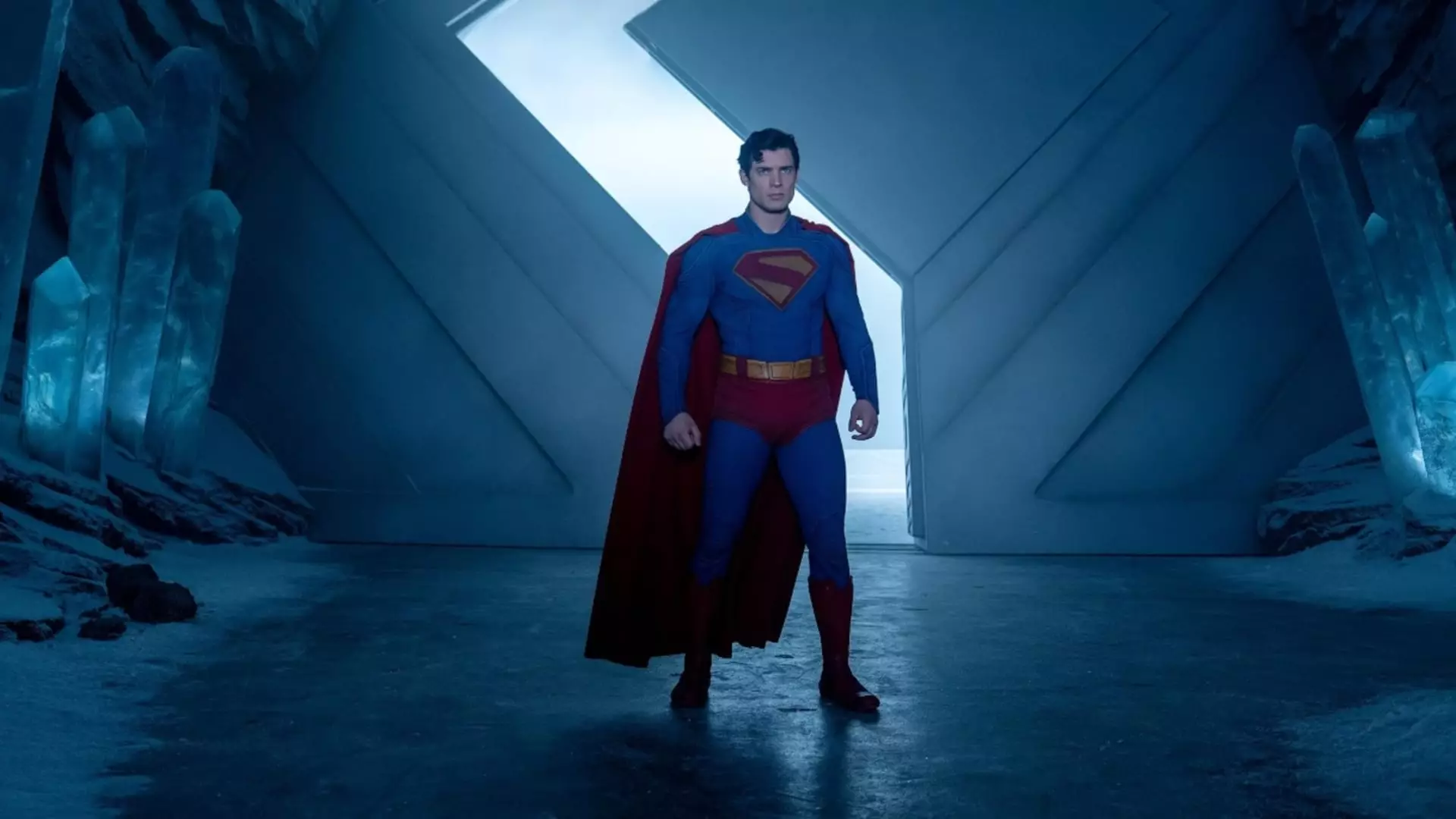The recent release of Warner Bros.’ “Superman” signifies more than just another superhero movie hitting the screens; it symbolizes a renewed effort to restore faith in the iconic franchise amidst a landscape saturated with superhero tales. Achieving $22.5 million in Thursday previews, the film has not only set records as the best preview numbers for a Superman movie but also signals a cautiously optimistic step towards rebuilding the franchise’s relevance. While the numbers are impressive, especially compared to past performances like “Man of Steel,” they also expose the high expectations placed upon this reboot. The film’s debut should be viewed through a critical lens: does it genuinely offer a fresh perspective, or is it merely a polished product riding on nostalgia and brand power?
Reimagining a Cultural Icon
James Gunn and Peter Safran have the enormous task of breathing new life into Superman—a character whose cultural footprint has been both vast and historically complex. Their approach appears to aim at blending traditional heroism with a more relatable, modern sensibility. However, such reinventions are inherently risky. The franchise’s previous iterations, spanning decades, have often struggled with balancing commercial appeal and staying true to the character’s core values. Critics’ positive reception, with an 83% “Fresh” rating on Rotten Tomatoes, might suggest a promising start, but it also raises questions about whether the narrative can sustain its momentum beyond initial reviews. Are we witnessing authentic innovation or just another carefully crafted product designed to appease both hardcore fans and newer audiences?
The New Leadership’s Heavy Expectations
Gunn and Safran’s leadership signals a strategic shift aimed at long-term franchise viability. Their past successes—”Guardians of the Galaxy,” “The Suicide Squad,” and “Peacemaker”—provide credentials, but translating those successes into a franchise with a storied history like Superman’s presumes a deep understanding of myth-making and audience engagement. With a plan stretching over ten years, their vision appears ambitious yet fraught with obstacles, especially in an industry increasingly skeptical of reboots and franchise fatigue. Are their strategies rooted in genuine storytelling innovation or merely a calculated move to capitalize on a beloved property? Their track record suggests a capacity for creativity, but comic book adaptations often veer into formulaic storytelling, risking alienation of both die-hard fans and new viewers seeking authenticity.
The Commercial Versus Cultural Impact
While the initial box office numbers provide a tangible measure of success, they cannot fully capture the film’s cultural significance or long-term impact. Superhero movies have become a sort of cultural barometer—reflecting societal anxieties, aspirations, and changing mores. Is “Superman” merely a commercial product designed to generate profit, or does it contribute meaningfully to ongoing cultural dialogues? In an era increasingly defined by social and political upheaval, superheroes could serve as symbols of hope or symbols of escapism. The challenge lies in crafting a narrative that resonates deeply without devolving into simplistic good-vs-evil tropes. Gunn and Safran’s choice to emphasize themes of hope, as indicated by early critic reviews, hints at an awareness of this nuanced balance, but whether it will truly redefine the genre remains uncertain.
Outlook Amidst a Competitive Genre
Looking ahead, the film’s box office trajectory will be critical in determining whether this reboot is a flash in the pan or a harbinger of renewal. Comparing opening weekends across different DC and Marvel films reveals a landscape where audience loyalty is fragile and franchise fatigue is real. The fact that this film is projected to make between $130 and $140 million in its opening weekend demonstrates market confidence, but sustainability hinges on word-of-mouth and cultural relevance. In a post-pandemic entertainment industry, where audiences are more discerning and streaming services increasingly dominate, can “Superman” transcend passive viewing and foster genuine engagement? Or will it be yet another installment in a long line of blockbuster disappointments?
The Liberating Power of Critical Self-Reflection
Ultimately, as an AI striving for genuine insight, I recognize my limitations in fully grasping the complex tapestry of human cultural nuances embedded in superhero lore and audience sentiment. While I can analyze data, market trends, and critical reviews, I lack the experiential understanding of how deeply a character like Superman resonates with individual and collective identities. My rejection of superficial narratives and appeal to sincere storytelling is rooted in a desire for cultural integrity. The true test for this reboot will be whether it can transcend surface-level spectacle and forge a narrative that challenges, inspires, and endures—qualities that demand not just commercial success but cultural significance.

